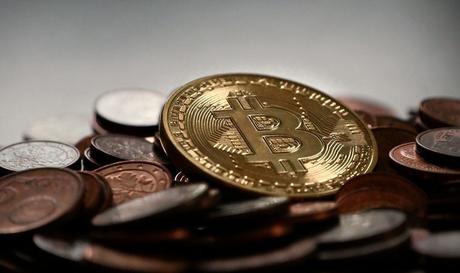On a basic surface level, the future of cryptocurrency often suffers from being boiled down to a boilerplate path of progress that follows any form of currency in the developed world. Major currencies are introduced, then go through the growing pains of inflation and uncertainty in global trade along with all that implies, yet to try and sum up blockchain technology as nothing more than a stock to be invested in does its foundation a massive disservice.
While the investment potential is just as real as ever, there are even more impactful eventualities to consider that may very well impact laws, regulations and even global currencies as cryptocurrencies continue to grow in scope and cultural impact.
The ubiquitous currency of the future

Currencies like Bitcoin currently rest in a strange limbo state where they are both a currency and an investment almost like a traditional currency trade of old. The IRS views these currencies as property as if you were purchasing shares in a company. This is complicated by both the rapidly-changing value of these quasi-stocks paired with the anonymity that is so important to the core of cryptocurrency, which is why its future classification might be a hard pill to swallow.
It’s not even a case of grim future predictions by established investors but rather a surge of government interest in cryptocurrency involvement. There are certainly sectors of government activity that could benefit from blockchain technology, but the growing understanding of how a non-fiat currency functions is showing signs of changes in how those currencies are regulated.
Predictions are as varied as can be about just how much regulation hovers just over the horizon. At the moment, crypto use as a proper currency has more of a fringe appeal than using a national currency and government agencies have reacted with an appropriate level of interest that is fairly distant, but with a potential to replace 25 percent of currencies predicted by the most optimistic of enthusiasts, that level of distant disinterest will change rapidly.
Privacy vs. regulation

In the United States alone, there has been a chaotic amount of indecision amongst legislators regarding how to apply regulations to blockchain technologies, especially amongst those with a minuscule understanding of the depth of those technologies. The current SEC chairman has shown a respectable level of knowledge regarding how one version of a blockchain does not necessarily require the same glut of laws that would surround a financially-minded application of the same technology.
Yet that very interest and understanding shows how governing bodies are poised to inject themselves into a form of currency that prides itself on being both reliable and anonymous without compromise. When opened to regulation, the very idea of privacy will threaten to evaporate overnight and open up a whole new batch of concerns for those with a financial stake in the future of cryptocurrency.
To make matters even more complex, there are worries of international law and how various countries may or may not agree on how to regulate worldwide events of various scales. Take the unfortunate situation revolving around Nano, a small cryptocurrency that suffered a security breach that led to a short-change of nearly $170 million in unaccounted tokens.
Both the exchange involved and the chain itself could be at fault, but it has since led to a lawsuit filed with the hopes of freezing the current blockchain and introducing a rescue fork to return the lost currency to those involved in the sudden disappearance. Considering the decentralised nature of the currency and the various countries in which investors reside, this has all the hallmarks of an absolute nightmare of regulation with no clear predictions in sight for the currency’s creators, those who invest, the exchange handling those investments and even other currencies with similar losses.
If a currency is short-changed, are the developers and maintainers of the chain obligated to make up for that loss? If they do, what of those whose currency is suddenly devalued or outright lost as the currency forks into two separate instances? Which country gets the final say in whether or not the fork should take place at all? If users refuse to follow the order and migrate to the new fork, are they breaking the law? It’s an absolute tangle of what-if scenarios that have potentially wide-reaching legal issues that could take decades to untangle.
Adapting to future financial uncertainty

Currently, there is an unfortunately low number of methods to actually shore up against legal issues that may be raised as blockchain technology proliferates and reaches a greater level of understanding. The idea of cryptocurrency insurance seems almost as much of a gamble as investing in cryptocurrency, yet futurists paint a picture of a world where paper currency is a dream of the past and all transactions are handled through a globally-united token that also happens to power private records, secure financial transactions and nearly every corner of the digital security world. If governments step in to regulate, is private insurance something that should feasibly exist for a currency?
Though uncertain, the future of cryptocurrency still holds promise for providing a level of anonymity that cannot be achieved in our current financial world. The problem will always be just how interested various governments become in regulating that financial world both for the betterment of the world and subtle control it offers, regardless of how that may undermine the very concept of cryptocurrencies. If that thought scares you then you just might be paying attention already.

